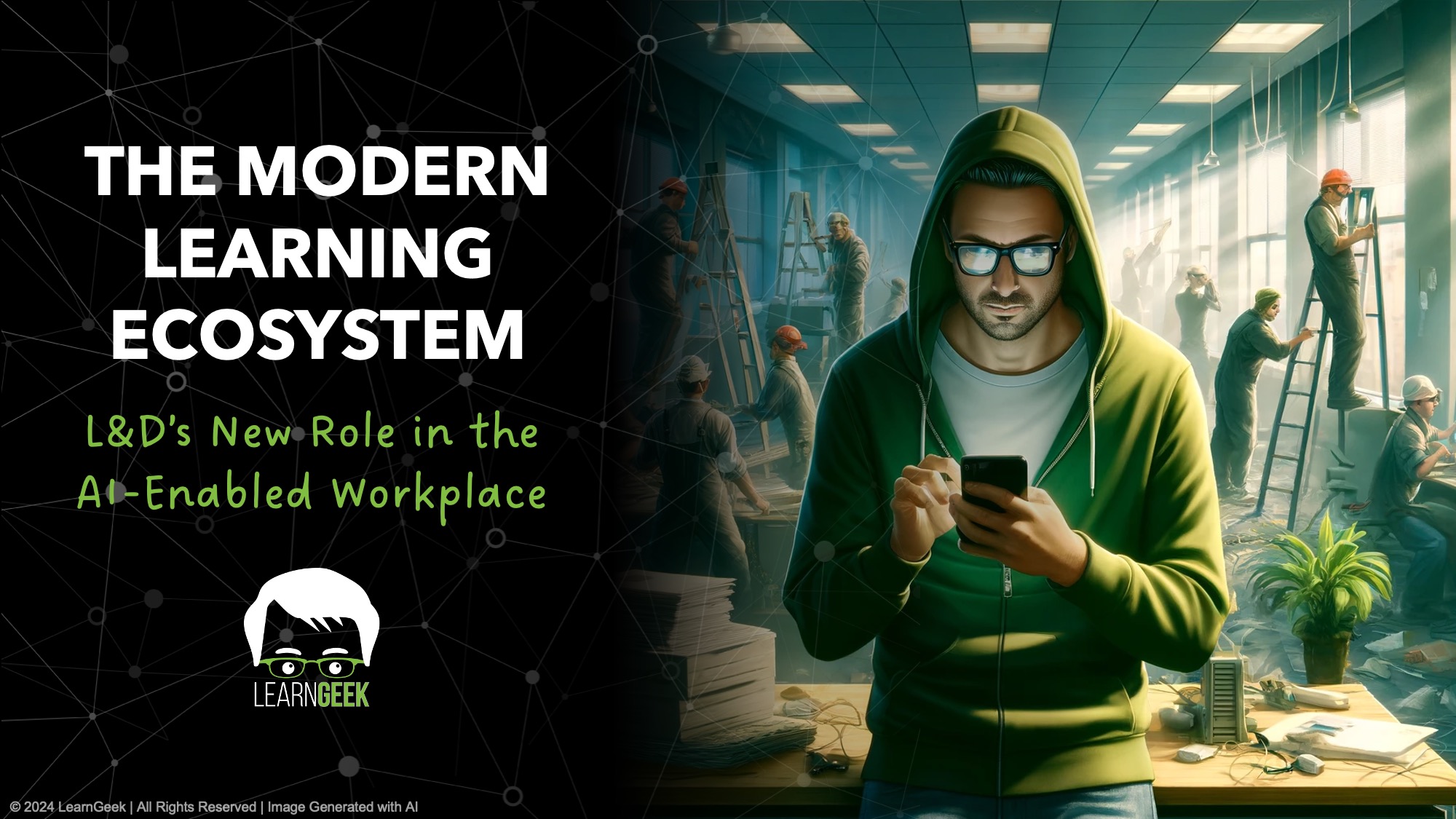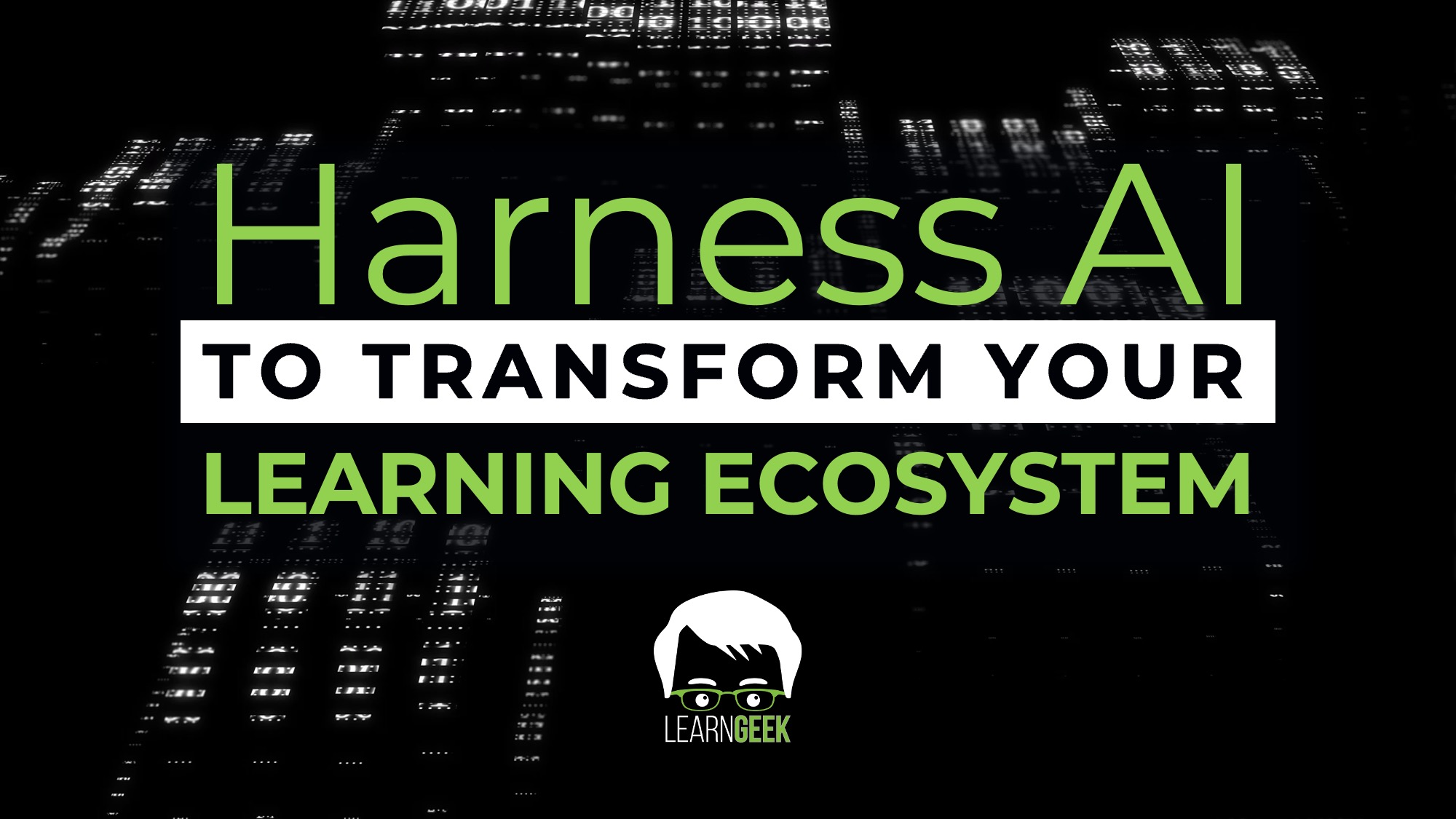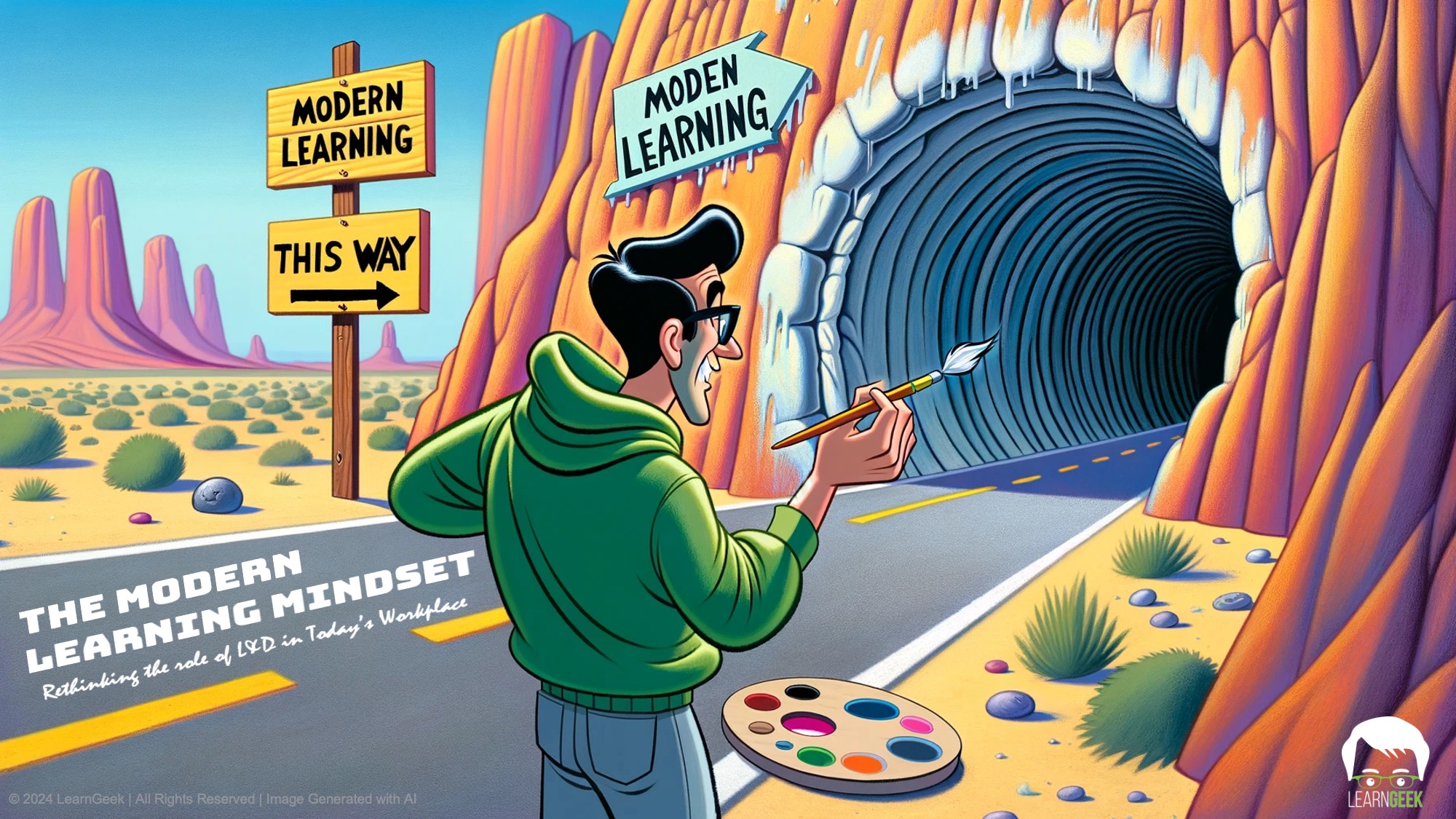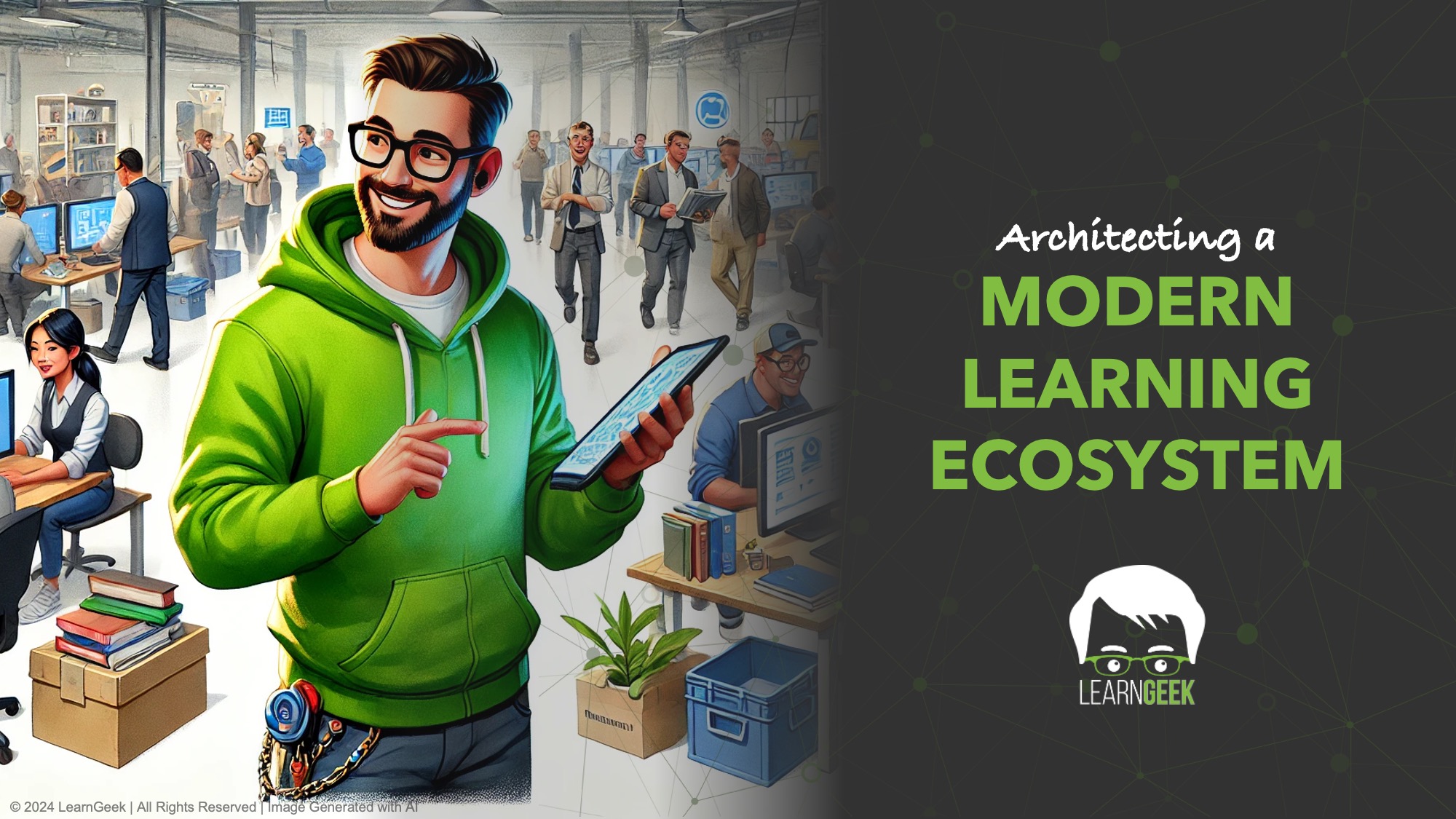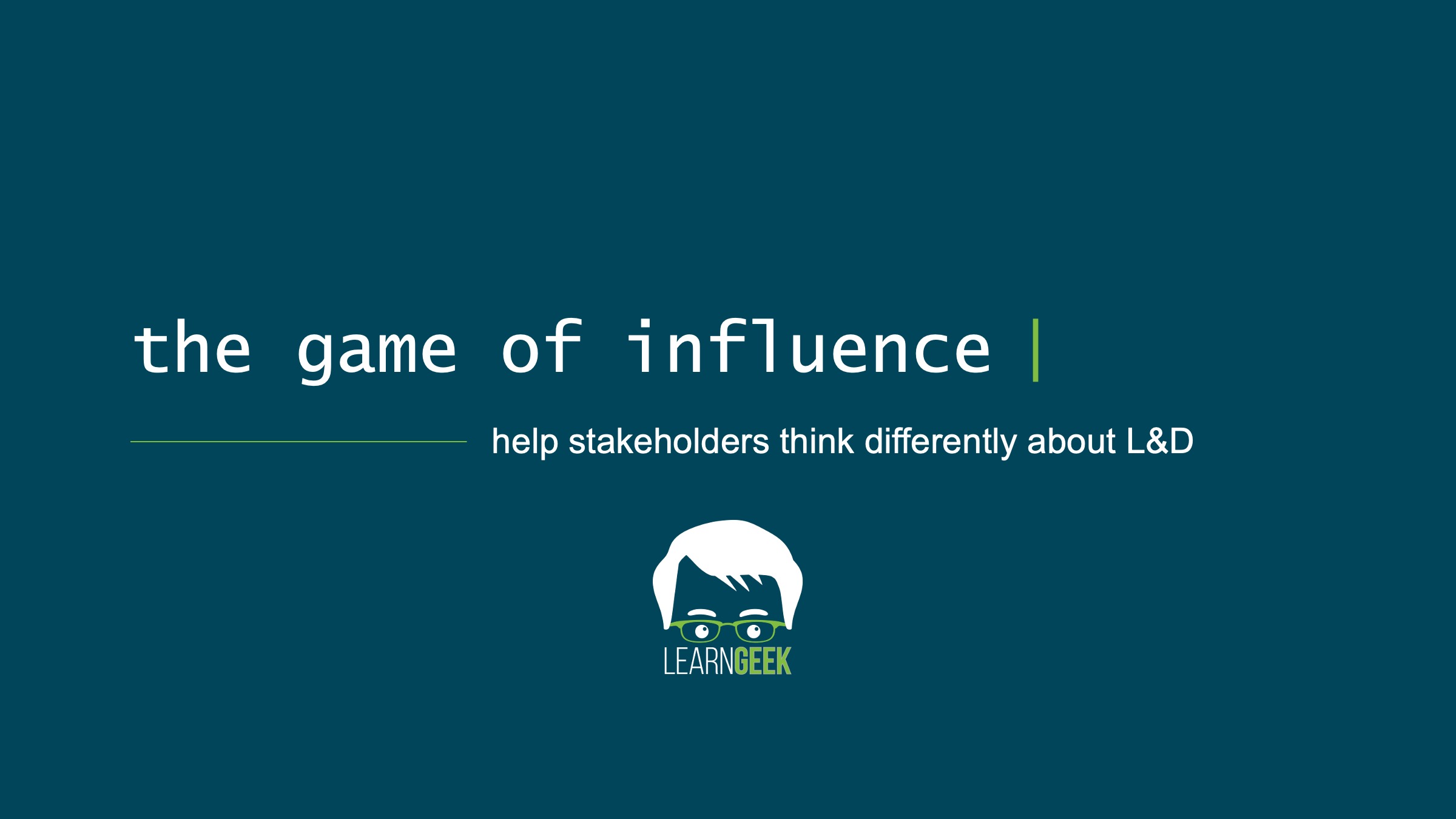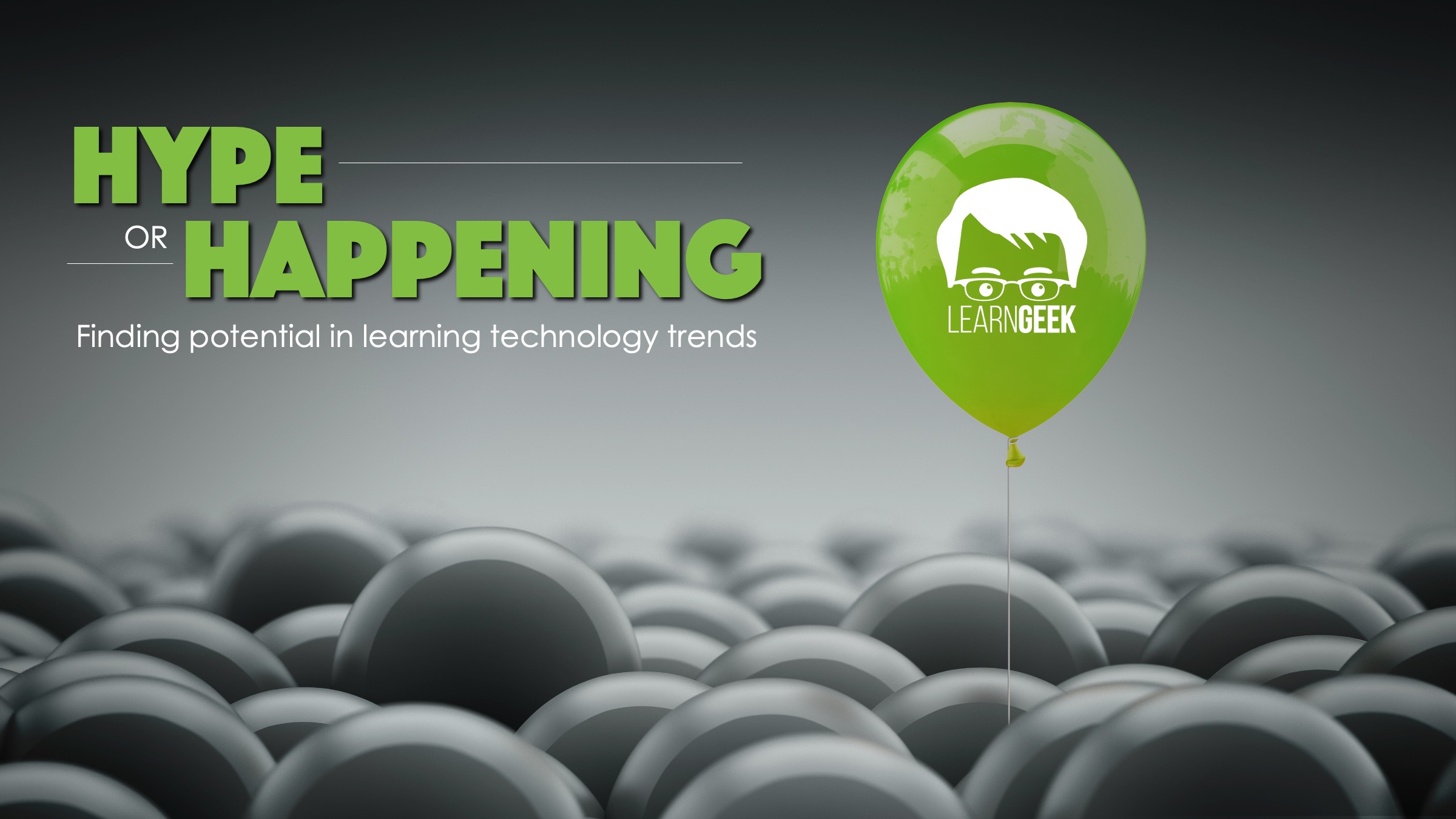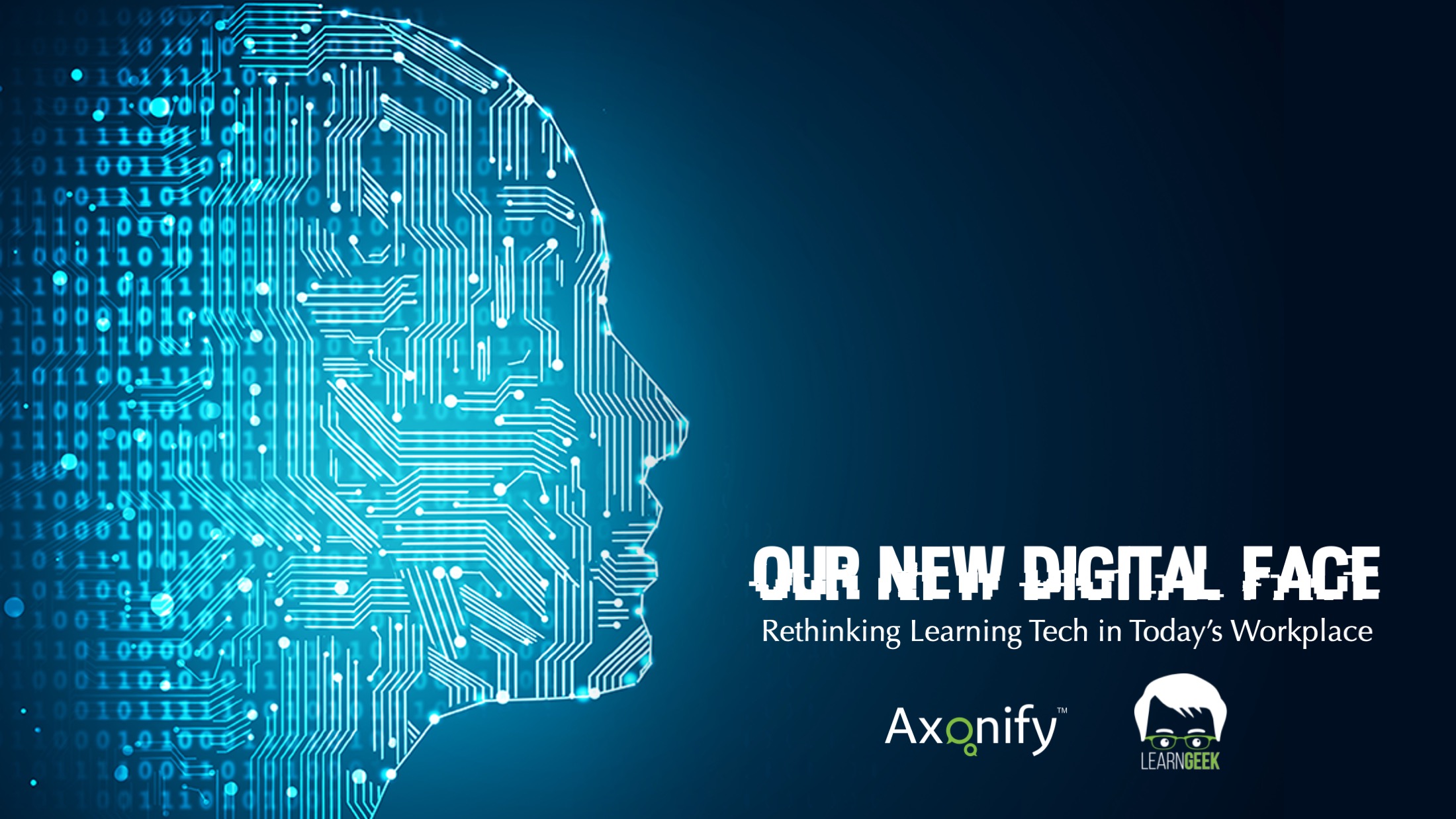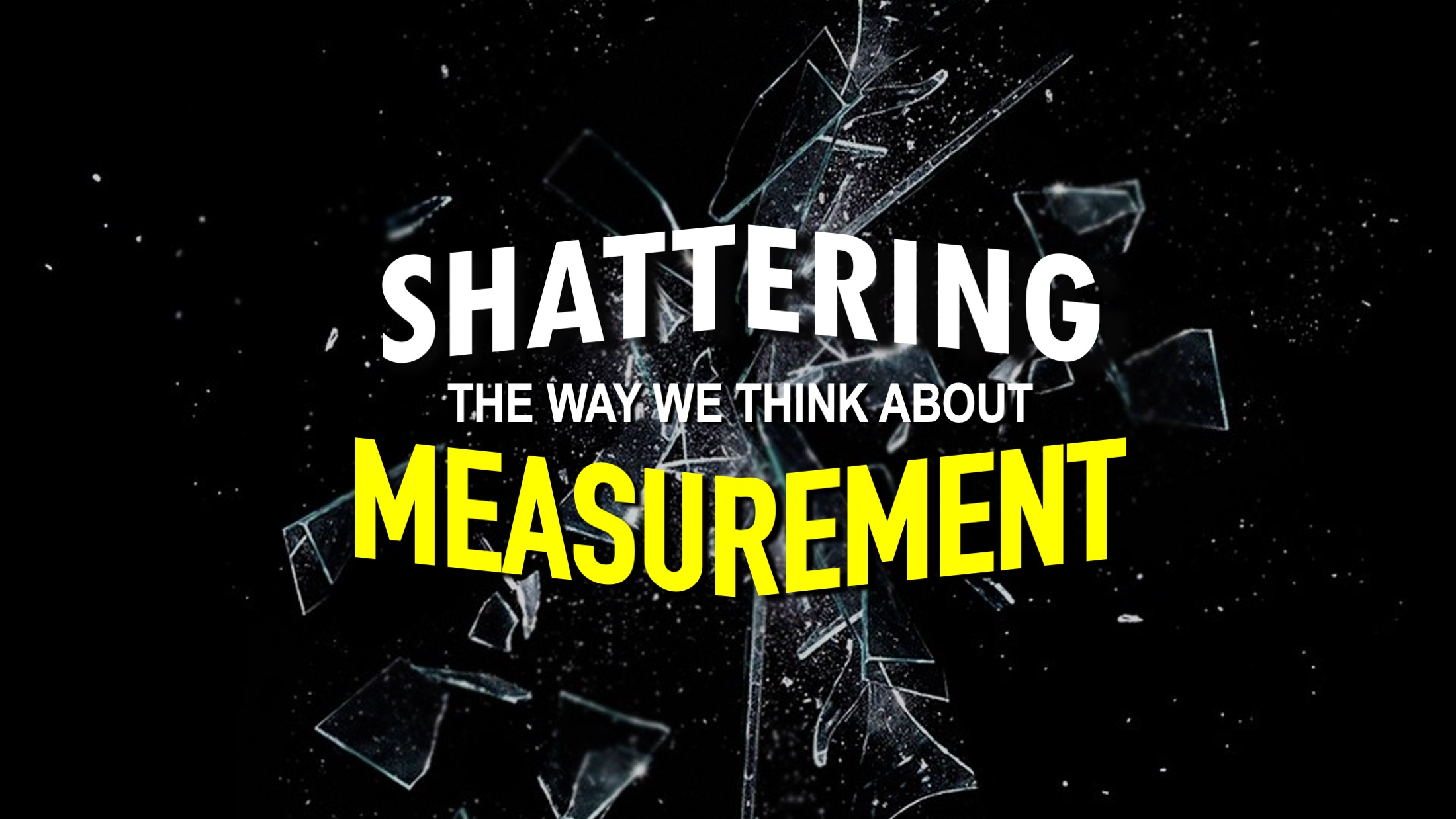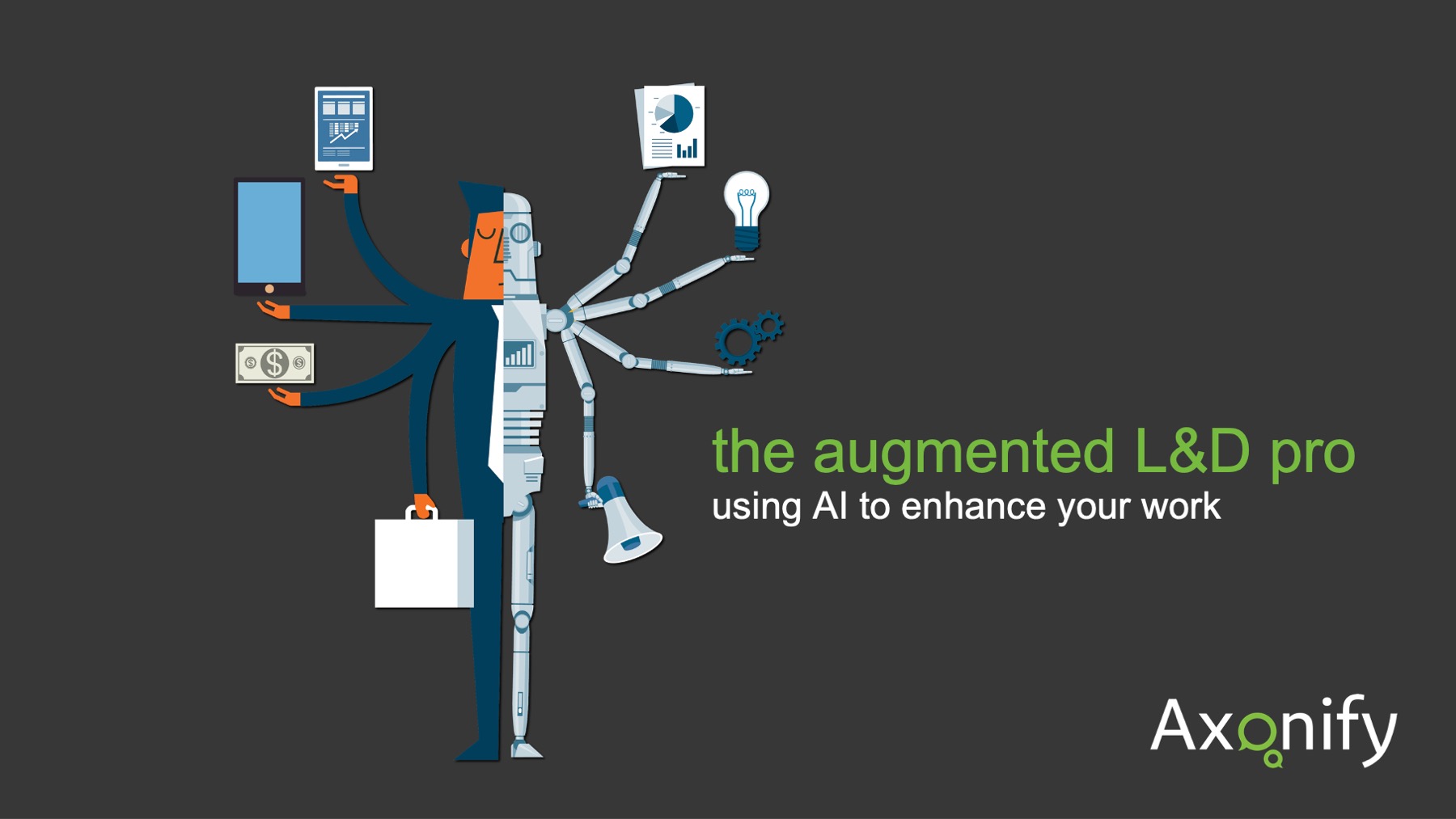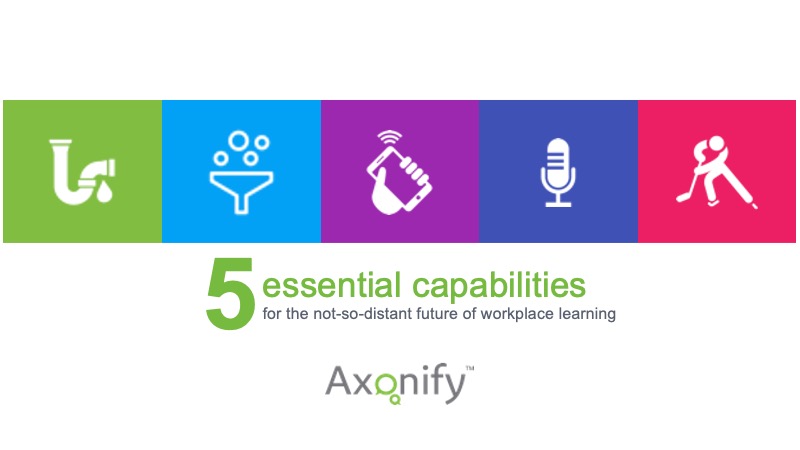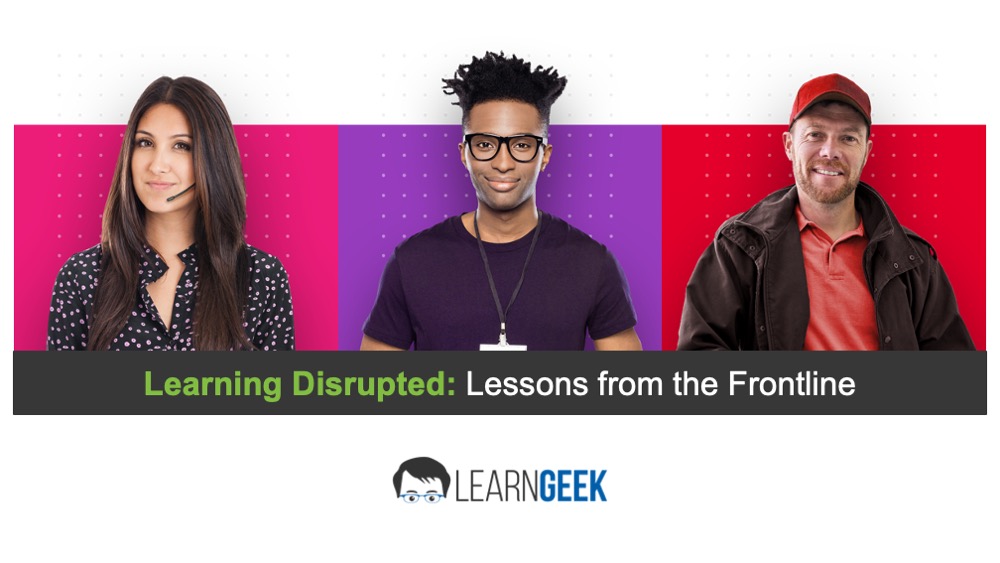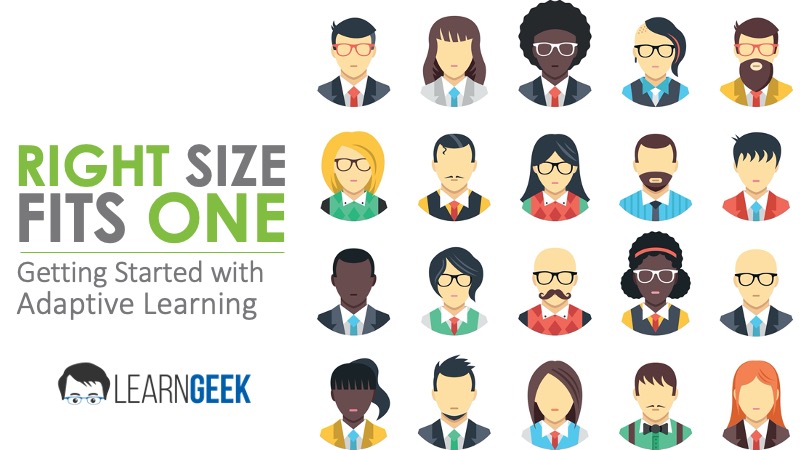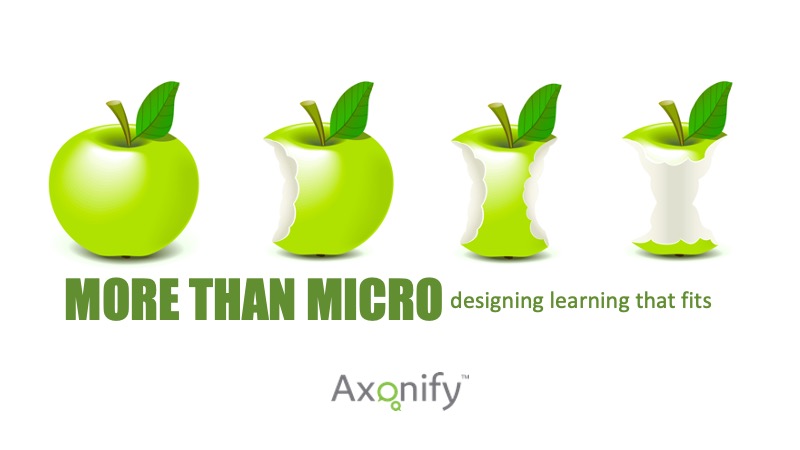I have the privilege of sharing my ideas and experiences during conferences, webinars, workshops and corporate events around the world. Here's a selection of slide decks from my most popular presentations.
The Modern Learning Ecosystem: L&D's New ROle in the AI-Enabled Workplace
L&D is already overloaded by performance challenges, compliance requirements and stakeholder demands. Now artificial intelligence (AI) is rapidly changing how work gets done. Traditional training cannot keep up with the needs of today’s organizations. It’s time to rethink L&D for the AI-enabled workplace.
We explore how L&D can re-architect the learning ecosystem. I show you how to adapt your learning strategy to keep pace with change, provide right-fit solutions and make sure people are ready for what comes next. I also explain how L&D can prepare for the impact of AI and leverage this technology to make learning and support more efficient, personal, scalable and equitable.
Harness AI to Transform Your Learning Ecosystem
AI is transforming how L&D professionals work. We can generate courses from source materials in minutes and translate content into dozens of languages with a single click. AI-powered technology is helping us solve familiar problems faster and more efficiently. But this is just the beginning!
In this session, we discuss the immediate and long-term impacts of AI on L&D. Rather than focus on specific applications, we approach the topic from a strategic perspective and consider how AI-enabled technology is shifting the learning ecosystem. We explore L&D's reimagined role within the AI-enabled workplace and how we can leverage a new generation of technology to amplify subject matter experts, keep pace with operational change, and foster equitable learning experiences.
The Modern Learning Mindset: Rethinking the Role of L&D in TOday's Workplace
How can we possibly keep up with changing workplace skill requirements, regulations, onboarding, etc.?!?! New technology is exciting, but it’s not the answer. Great content is vital, but it’s not the answer. Every successful workplace transformation begins in the same place: mindset. This session dives into the modern learning ecosystem. We discuss what it takes to escape the course mentality, foster learning as an always-on system of work and influence stakeholders to embrace new ideas.
An organization can only transform as fast as its people can learn. Let’s kickstart an L&D evolution to get people the help they need to do their best work today while developing the skills they’ll need to be successful tomorrow.
Employee Engagement is Stagnant. L&D is the answer.
Only thirty percent of U.S. employees are currently engaged at work (Gallup). Unfortunately, that’s the same percentage of employees who felt engaged in 2004. On top of that, 40% of frontline workers currently want to quit. Clearly it’s time to rethink the approach to frontline employee engagement!
Let's explore a new engagement framework built on the latest research into the frontline experience. Rather than focus on tomorrow, we'll highlight what employees need to have a great day at work - every day. We'll also define the role L&D plays in fostering a comfortable, capable, confident frontline team.
Architecting a Modern Learning Ecosystem
The pace of workplace change is downright ridiculous! Employees must contend with a never-ending stream of new processes, regulations, products and technologies. Companies are struggling to close critical skill gaps that put their future growth at risk. On top of all of that, budgets are tightening as teams are asked to do more with less as the result of ongoing economic uncertainty.
Traditional learning methods, like structured programs and formal courses, simply can’t keep pace with our changing workplace reality. Instead, L&D must adopt a holistic view of employee development, expand our toolkit and activate the entire workplace ecosystem. In this session, we explore the practical and proven Modern Learning Ecosystem Framework, a disruption-ready approach to learning and support in today’s workplace.
Influence: Helping Stakeholders Think Differently About L&D
Let’s play The Game of Influence! This session will help you to think differently about the way you engage with your stakeholders to drive learning outcomes.
You’ll identify key stakeholders, including executives, IT, legal/compliance, peers, managers and employees, and determine how their perspectives influence L&D capability. You’ll overcome common stakeholder objections, such as time limits, regulatory requirements, tech specifications and corporate politics. You’ll emerge victorious by building solid stakeholder relationships based on trust and expertise. You’ll leave the session with proven tactics for transforming your organization’s learning mindset.
Hype or Happening? Finding Potential in Learning Technology Trends
It’s difficult to keep up with the pace of technology innovation. Vendors and thought leaders constantly talk about next-generation concepts like artificial intelligence (AI), virtual reality (VR), 5G, blockchain, and the metaverse. But are these concepts having a real impact on how people develop their knowledge and skills? And how might they fit within your learning technology ecosystem?
Move past the hype and identify the real potential behind today’s biggest learning tech trends. Discover a framework for selecting right-fit tools to augment your learning technology ecosystem, and make sure everyone gets the support they need to do their best work, no matter where they do their jobs.
Our New Digital Face: Rethinking Learning Tech in today's Workplace
The past two years have redefined the relationship between work and technology. Employees have been empowered to go remote thanks to digital collaboration tools. BYOD has ramped up on the frontlines to help people keep pace with change. Online learning has spiked to unprecedented levels, but is L&D leveraging its full digital capability?
In this session, you’ll learn how to maximize your learning technology stack. We break down the seven ways technology can improve workplace learning, demonstrate how personas should guide the design of your digital learning strategy, and show you why right-fit digital experiences will play a critical role in closing skills gaps and restoring learning equity.
Shattering the Way We Think About Measurement
The most well-known learning measurement models have been around for decades, and yet the industry continues to struggle with its measurement practices. We’re great with surveys. We have plenty of test scores. But most L&D teams still cannot answer critical stakeholder questions, including if training is actually working?
In this session, we break down why traditional models will never fix our learning measurement problem. We highlight proven data practices that can help you answer critical workplace learning questions. We discuss how you can apply modern learning tactics to capture, analyze and apply right-fit data.
The Augmented L&D Pro: Using AI to Enhance Your Work
Artificial intelligence is a rapidly-emerging technology in our everyday lives. Most of us use AI every day, but we often don’t know it. There is already a lot of buzz - some real, some hype - around what AI can do. L&D risks falling behind on another paradigm-shifting technology if we do not take action and begin to explore how we can leverage this new capability in our work.
In this session, we explore the immediate future for AI in workplace learning. We discuss the current state of AI and clarify what it can and cannot do. We highlight the role data will play in the emergence of AI-enabled L&D and provide a new framework for learning measurement. We explore new and existing AI capabilities that are already being used within workplace learning.
5 Essential Capabilities for the Not-So-Distant Future of Workplace Learning
Learning is change. People do their best to keep up with the changes happening around them so they can do their best work every day. However, as the pace of change accelerates, people need more help finding the best ways to improve their knowledge and skills. To provide value in the modern workplace, L&D must rethink the fundamentals of how they enable people so they can help them get ready for whatever comes next.
In this session, we explore five "alternative roles" L&D can adopt to improve their ability to keep pace with workplace change. We discuss how L&D can leverage an ecosystem mindset, curation tactics, data and influence. We identify the real future of workplace learning: efficiency, agility and personalization.
Learning Disrupted: Lessons from the Frontline
80% of the global workforce are frontline employees. They have always been an important part of your business. They’re the face of your brand, and they work directly with your customers and products. The pandemic has reminded us of just how essential these workers are to your organizations and communities. Healthcare workers. Grocery associates. Bank employees. Delivery drivers. They continue to clock in every day so others can stay home and avoid infection.
We'll show you how L&D teams around the world have shifted their mindset and reimagined their approach to workplace training so they can focus on what matters most to their employees, customers and communities in the face of unprecedented disruption.
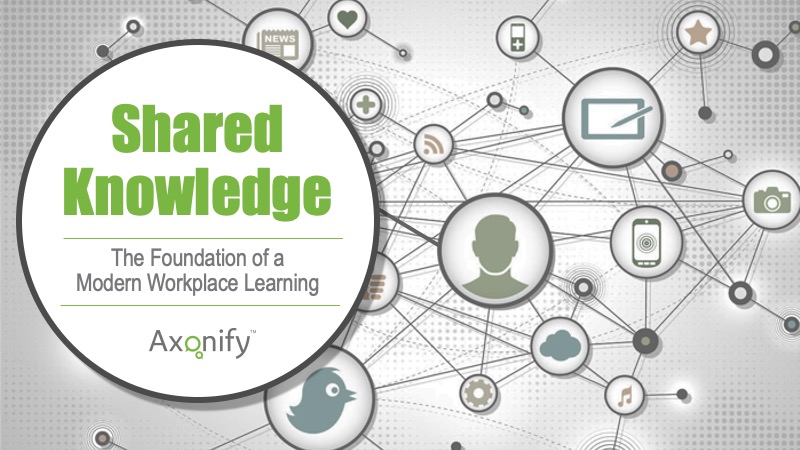
Shared Knowledge - The Foundation of Modern Workplace Learning
Courses. They are the basic building blocks of workplace training. Stakeholders usually ask for courses when the approach L&D for help. Courses are what most people are used to when it comes to learning at work. They may be L&D's go-to solution, but courses are actually at the bottom of the list when it comes to perceived importance. Besides day-to-day work experience, shared knowledge and on-demand resources are the most highly-valued workplace learning tactics.
How can L&D escape the course mentality and expand its toolkit to align with modern learning expectations? How can shared knowledge be applied to solve high-priority business problems? How can L&D pros influence stakeholders and subject matter experts to consider solutions other than structured courses?
Right Size Fits One: Getting Started with Adaptive Learning
Are you stuck providing a one-size-fits-all training that really isn’t benefiting anyone? Too often, L&D must make a lose/lose decision and choose between building personalized experiences or providing something generic to the entire organization. Thankfully, evolutions in the application of data, instructional design and learning technology now make it possible for L&D to provide right-size-fits-one support to every employee, even within the largest, most complex organizations.
In this session, we dissect the concept of adaptive learning. We discuss the converging trends that are opening the door to a new form of personalized learning in the workplace. We explore the types of data available in the workplace that can enable adaptive experiences. We demonstrate how learning designers can shift their development processes and build content that fits an adaptive model. Finally, we discuss principles for enabling adaptive learners as well as maintaining an agile, responsive L&D team.
More Than Micro - Designing Learning That Fits
Microlearning remains a popular topic within the learning and performance field. While practitioners and stakeholders alike say they want it, the industry has not really defined “microlearning.” Without a consistent understanding of the concept and tactics, L&D risks turning microlearning into another short-lived trend that fails to help us better support people and organizations.
This session will demystify microlearning by clearly defining it in 3 words: learning that fits. We’ll explain why microlearning is a repositioning of familiar L&D tactics. We’ll show you how to design learning solutions that “fit” within the modern workplace. We’ll discuss the importance of technology in a microlearning strategy, especially for distributed organizations. We’ll share real-world examples of how microlearning is driving bottom-line results. You will leave armed with the principles needed to start applying microlearning in your everyday work.
